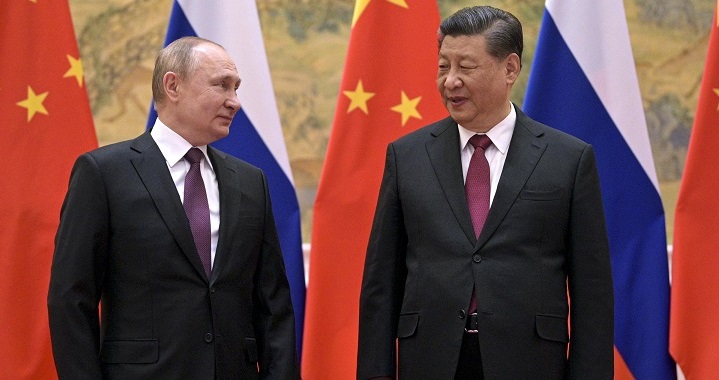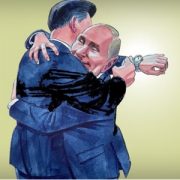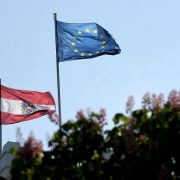
Whether Russia wins or loses in Ukraine is a tough snag for China. Beijing, however, has unexpectedly gained some time. How will it use it? Will a hot war this time avert or incense a much larger Cold War II? Is the war in Ukraine only the first step of a much larger conflict?
Some time ago, we wrote that historically, there are significant geopolitical crises and wars[1]at the end of a large pandemic. The Russian invasion of Ukraine now looks like the first piece of a possibly long series of events that will start to unravel in the following months and years, perhaps totally reshaping the global geopolitical landscape.
Just days after it started and still in the middle of the fog of war, the battle for Ukraine seems already to be crashing. The Ukrainian President Volodymyr Zelensky did not flee the capital, leaving his country in disarray. The army held its positions and fought; the ordinary people were preparing for a guerrilla war. New tactics and weapons are apparently effective against Russian forces.
Russians seem to be meeting more resistance than anticipated, and they have failed so far to cut telecommunications and transportation in the country.
In Russia, people took to the streets in the main cities, while hundreds of thousands allegedly signed petitions for peace. Moreover, army officers and intellectuals are calling for the fighting to stop. Overall, the Russian propaganda war machine is sputtering. Many Russians at home and abroad do not understand the reasons for the invasion, let alone support it. Meanwhile, Zelensky’s videos are making global inroads and possibly are gaining traction also in Russia.
The following days will be crucial and the outcome is far from certain. Possibly over half of the Russian forces committed to this war are still out of Ukraine and it is uncertain what is the plan of Russian generals. It is tough to tell how this will evolve and affect the current slow progress in the fight because there are too many uncertainties, but unless Putin manages to have a total victory pretty soon, he could be doomed.
If, after a few weeks, Russian President Vladimir Putin fails to take complete control of Ukraine’s main cities and is forced to pull back, he could meet vicious protests at home. Then he could cope with this protest in two ways, either by giving in and possibly resigning or just increasing the repression. A crackdown after a failure in Ukraine could also spiral into an uglier state of affairs at home and abroad.
The battle for Ukraine is only part of a much larger game embracing the future of Russia, the question of China and the future of the world.
China’s choice
This opens the other global fissure: China. China is lucky because the Ukrainian invasion was a godsend for President Xi Jinping, who rightly felt under siege.
This situation is somehow similar to what China experienced in 2001. Then, at the beginning of the first term of President George Bush Jr., America appeared ready and determined to have a reckoning with China. The April 1 EP-3 episode was clearly a sign of escalating tensions between the two countries. An American surveillance plane had crash-landed on Hainan Island after a mid-air collision with a Chinese fighter, which eventually sank into the sea. The two countries looked as if they were on the verge of war.
China was then saved by the 9/11 terrorist attack, which diverted American and global attention from China to Muslim terrorism. China used that occasion well at first. It fully collaborated with the United States on Afghanistan and gained quite a few precious years while the idea of the “China threat” was put on the backburner.
However, the idea of China as a global challenge reemerged as Beijing felt safer and more secure of itself. Slowly but steadily, after 2004–2005, with the failure of the second gulf war, and then with the 2008 financial crisis, Beijing grew convinced that America was declining and China’s rise was unstoppable.
This proved not to be a clear-cut case, to say the least, and war in Ukraine proves the overall strength and pull of the United States. NATO is back, and European countries as an independent political entity are in decline because they misjudged and mistook Putin’s intentions and didn’t trust American reports about an imminent attack, which turned out to be true.
Moreover, America’s return reassures allies and countries around China that despite many years of wavering and mistakes, America is still a global force. Besides, if America is right about Russia now, it may be right also about China. Then European countries, which so far have been dragging their feet in the US drive against Beijing, could be mollified and get along more easily. This could be especially true if Beijing is perceived as supporting Putin.
America’s Back
In a way, this proves America’s strength and mettle even more because it was able to endure massive setbacks and still came back more vital than ever, more resilient than ever.
Then, what are the lessons from the past to be taken by China at this moment, during weeks and months when the United States is distracted from its main point of attention, China? Or will war last years?
What happens if Russia wins the war? And if it loses it? Both scenarios are unpleasant for China.
If Putin wins, Russia will be much stronger, more aggressive towards China. China is already worried about this Russia, let alone if it gets stronger. For example, it seems there were miscommunications between China and Russia about the attack. It is possible that Moscow did inform the Chinese about it, but not about its scale. Therefore, Beijing probably thought Russians were attacking only the Donbas region rather than the whole of Ukraine. If Moscow did it when it needed Beijing the most, what would it do if it took over Ukraine and became stronger?
On the other hand, if Putin loses in Ukraine, he falls, and then what happens to Russia? Unlike the former Soviet Union, which was firmly structured around the Communist Party, modern Russia pivots around the personality of Vladimir Putin; if he fails, Russia could also fail and fall apart. Or if it holds on, will it change direction completely, become pro-Western? Or what else? If that is the case, China will be isolated from all sides.
In any case, China is at risk of becoming more isolated. This is a dramatic scenario for China because this could happen not in years but weeks, months. After all, if Putin cannot take Kyiv without too many losses in a week, ten days, this is already a snub.
The easy answer is that, like in the aftermath of 9/11, China should collaborate as much as it can with the United States in containing Putin, who has become deeply distrusted in the global community, as old China-hand ambassador Joseph DeTrani argued recently.[2]
However, unlike in 2001, America will be less willing to trust China after the last decades’ slow but systematic bilateral friction. It could take Chinese support as a necessary yet insufficient measure to start talking. China has now gained time and respite, but its old issues will come back with a vengeance after the Ukrainian war. It’s like a pain-killer with a brain tumor; it helps, but it’s no solution, and hurt will be harsher in a while.
Hot Cold Wars
Cold wars start with hot ones. The real momentum of the first Cold War and the Iron Curtain began with the war in Korea in 1950. After the end of World War II, for five years, Western countries and the Soviet Union pushed each other around areas of influence established by both sides and which both sides overall respected.
Yet, things started to get really nasty when North Korea attacked South Korea. Then, Mao Zedong was still on the fence between the US and USSR; or at least the United States was undecided about what to do with him. Some in America argued that he could be won over and Stalin possibly didn’t trust Mao too much.
After the People’s Republic (PRC) proclamation on October 1, 1949, Mao was poised to reunite and reconquer Taiwan, where the exiled nationalist KMT government had fled. The Americans had refused requests of help and support from the KMT, de facto aiding Mao on his path to victory. The United States was perhaps still ambivalent about allowing the PRC to reconquer Taiwan.
Stalin, however, directly to Mao himself and indirectly through the many pro-Soviet people in the party, pressed Mao on intervening in Korea by supporting the North, which was utterly defeated.
The result was that after Chinese intervention, an American fleet was stationed to protect Taiwan, and the PRC was left with two problems unsolved until today: one, unification with Taiwan; two, the festering bubble of North Korea. Chinese have been wondering for decades if it was the right choice or if having a united pro-western Korea at the border and no Taiwan’s headache would have been better. But perhaps then Mao had no choice. Unlike now.
Is the Ukrainian crisis now Cold War II’s “Korean War”? This will largely depend on China’s steps in the coming weeks and months.
[1] See http://www.settimananews.it/informazione-internazionale/plagues-liberal-society-and-the-future-after-covid/ and http://www.settimananews.it/informazione-internazionale/doom-or-renaissance-china-after-plague/
[2] See https://www.washingtontimes.com/news/2022/feb/22/chinas-alignment-revanchist-russia/





